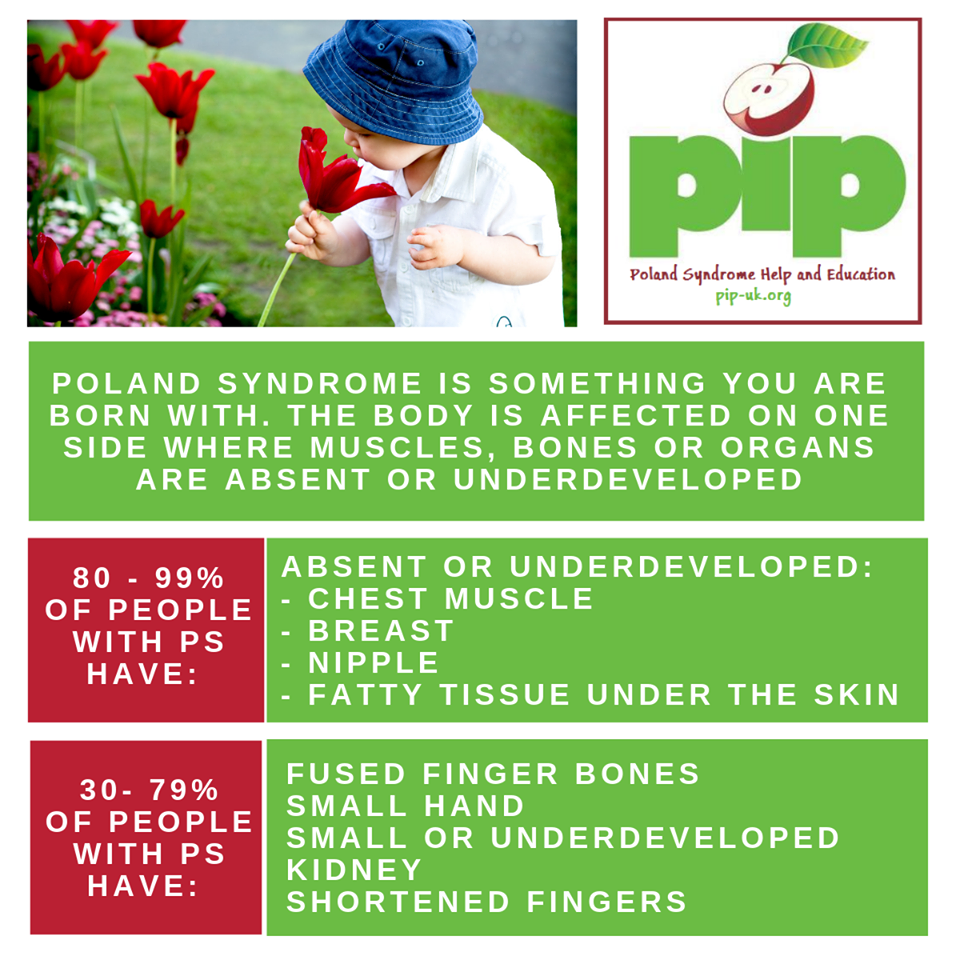


What is Poland Syndrome?
Poland Syndrome is a rare birth difference. This syndrome occurs during foetal development and the baby is born with physical differences. The main physical sign of Poland Syndrome is an under-developed or missing chest muscle. This is not something that a parent or indeed doctor may be able to see without some further investigations. Sometimes this is not seen at birth. A child may be several years old before the missing muscle(s) become apparent parents often describe a “sunken-chest”. However, another notable sign you might see are some of the child’s fingers are webbed on one hand or there are digits missing or underdeveloped. As Poland Syndrome is a syndrome there are various physical differences a person may be born with. Many people with Poland Syndrome are not diagnosed until much later in life due to the rarity of the condition.
You can find out more information about Poland Syndrome and its associated symptoms on the GARD website, which is regularly updated.
What causes Poland Syndrome?
Unfortunately the answer to that is currently unknown. There are a number of theories; probably the most accepted is that during development in the womb blood flow to the arm is diminished in some way which leads to under-development.
What treatments are used for Poland Syndrome?
Poland Syndrome difference can be surgically corrected if the parents and/or child wishes to have the procedures. We highly recommend you discuss the options with your medical professional and do some research. At PIP-UK we can offer you the benefit of our experience so please contact us if you want to talk things through.
The Italian Poland Syndrome Association produced a paper about the treatement and diagnosis of Poland Syndrome. This is the best infromation available at present.
How can I get a diagnosis?
The most common way to receive a diagnosis for Poland Syndrome is when you visit a surgeon about your symptoms.
If you have not yet received a diagnosis, we recommend getting a referral to a geneticist. Poland Syndrome is not thought to be a genetic condition, but a geneticist is best placed to do any required tests and give you a full diagnosis, ruling out any other conditions. In the UK, your GP should be able to refer you to a geneticist.
How can PIP-UK help me?
First off, we suggest you take a look at our blog posts. Here you will find shared experiences from a variety of people who have Poland Syndrome or who have a loved who has Poland Syndrome.
We can offer a number of differnt ways to help including 121 support and advice, childrens clinics, advocacy, wellbeing services and events.
Next either give us a ring or send an e-mail to us. If we don’t have the answers you need we will find someone who does.
Note: PIP-UK is only sharing this information from their own experiences a medical professional should always be consulted about Poland Syndrome or any other rare conditions.
